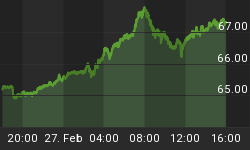This month the US Administration notified Congress that it intends to complete one of the largest arms sales in US history to one of the most repressive regimes on earth. Saudi Arabia has been given the green light by the administration to spend $60 billion on some 84 new F-15 aircraft, dozens of the latest helicopters, and other missiles, bombs, and high-tech military products from the US weapons industry.
Saudi Arabia, from where 15 of the 19 September 11 hijackers came, is a family-run dictatorship, where there are no political parties, no independent press, and where any form of political dissent is met with the most severe punishment. We are told that we must occupy Afghanistan to encourage more rights for women, an issue on which the Saudi regime makes the Taliban look rather liberal by comparison. We are told that our increasingly aggressive policies toward Iran are justified by that country's rigid Islamic laws and human-rights violations, while the even more repressive Islamic rule in Saudi Arabia is never mentioned.
So why would the US government, which spends hundreds of billions of dollars yearly and maintains hundreds of bases overseas to push global democracy, approve a deal like this with such a regime? As Stockholm Institute scholar Pieter Wezeman told the Washington Post, "Of course it's against Iran. Of course it's against Yemen. You can read between the lines ... but there are not any official statements about it." Although the deal must be approved by Congress, there is little chance of any significant Congressional opposition for the above reason.
Imagine if China had armed an aggressive, anti-American Mexico to the teeth. How would we feel? Threatened? That is likely how Iran feels with this massive arms sale to Saudi Arabia. To underscore this message, the US quietly announced early this month that it was selling 20 F-35 Stealth fighters to Israel. As Israeli military purchases are paid for with US foreign aid, we must realize that the weapons pointed at Iran in the Middle East are American made and largely paid for with American tax dollars. Certainly Iran understands this. Will such a provocative move, arming two anti-Iranian powers in the region to the teeth, lead to a trigger event to bring about a full invasion of Iran? The economic tsunami that would result from such a horrific turn of events would only be eclipsed by the death and destruction in the region -- and likely beyond.
Some will argue that these arms deals are international trade which we should encourage and applaud. Sadly, the United States does not build much that we can export these days. But the fact is that the US weapons industry is underwritten by the American taxpayer. From research and development to acquisition by the US military, the costs of the US arms industry are borne by American citizens. But, as so-called "private" companies, the enormous profits they make selling weapons to countries like Saudi Arabia are of course privatized. So the costs are socialized and the profits are privatized. There is a word for this arrangement and it is not "capitalism."















